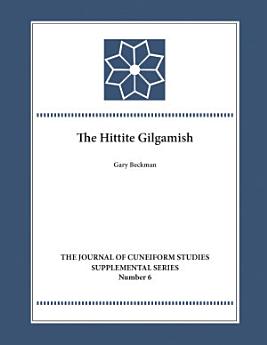The Hittite Gilgamesh
Jun 2019 · Journal of Cuneiform Studies Supplemental Series Book 6 · Lockwood Press
5.0star
1 reviewreport
Ebook
112
Pages
family_home
Eligible
info
reportRatings and reviews aren’t verified Learn More
About this ebook
From the late third millennium BCE on, the adventures of the hero Gilgamesh were well known throughout Babylonia and Assyria, and the discovery of Akkadian-language fragments of versions of his tale at Boğazkoy, Ugarit, Emar, and Megiddo demonstrates that tales of the hero's exploits had reached the periphery of the cuneiform world already in the Late Bronze Age. A century of excavation at the Hittite capital of Hattusa (mod. Boğazkoy) has yielded more textual sources for Gilgamesh than are known from all other Late Bronze Age sites combined. The Gilgamesh tradition was imported to Hattusa for use in scribal instruction, and has been of particular importance to modern scholars in reconstructing the epic and analyzing its development, since it documents a period in the history of the narrative for which very few textual witnesses have yet been recovered from Mesopotamia itself. And it is this very Middle Babylonian period to which scholarly consensus assigns the composition of the final, "canonical" version of the epic. The Hittite Gilgamesh offers a full edition of the manuscripts from Hattusa in the Hittite, Akkadian, and Hurrian languages recounting Gilgamesh's adventures.
Ratings and reviews
5.0
1 review
Andres Hinojosa
- Flag inappropriate
March 25, 2023
Interesante
About the author
Gary Beckman is George C. Cameron Professor of Ancient Near Eastern Languages and Cultures in the Department of Middle East Studies at the University of Michigan.
Rate this ebook
Tell us what you think.
Reading information
Smartphones and tablets
Install the Google Play Books app for Android and iPad/iPhone. It syncs automatically with your account and allows you to read online or offline wherever you are.
Laptops and computers
You can listen to audiobooks purchased on Google Play using your computer's web browser.
eReaders and other devices
To read on e-ink devices like Kobo eReaders, you'll need to download a file and transfer it to your device. Follow the detailed Help Center instructions to transfer the files to supported eReaders.





